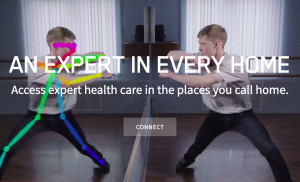An artificial intelligence (AI) web app that may help with the diagnosis of Parkinson’s disease in people who are isolated or living in remote areas has been launched by a South Australian university-backed start-up company.
Lookinglass, based at the University of South Australia’s Innovation & Collaboration Centre, has launched its eponymous app which utilises a so-called “smart mirror” – essentially a digital display behind a two-way so the user can see themselves and the display image at the same time.
According to Lookinglass CEO Kelly Carpenter the application initially started life as a tool for occupational therapists to remotely assess the progress of rehabilitation in patients with movement disorders.
But it quickly became apparent it had the unintended potential to identify motion symptoms of Parkinson’s disease and could be especially useful for individuals who may find it difficult to make it to a consultation.
The company’s website states: “Lookinglass is an eternally vigilant smart mirror platform able to detect the symptoms and progression of degenerative health conditions. Using proprietary machine learning and computer vision techniques, our platform identifies ill health in a family member or patient as they go about their normal daily routine.”
According to Lookinglass, users simply upload a video recording of themselves via their home.
While it uploads, the computer vision system simultaneously uses AI to track movement and compares it with known physical Parkinson’s symptoms, creating a report immediately.

Lookinglass website screenshot
The website claims it is “smart enough not to overburden health care practitioners”.